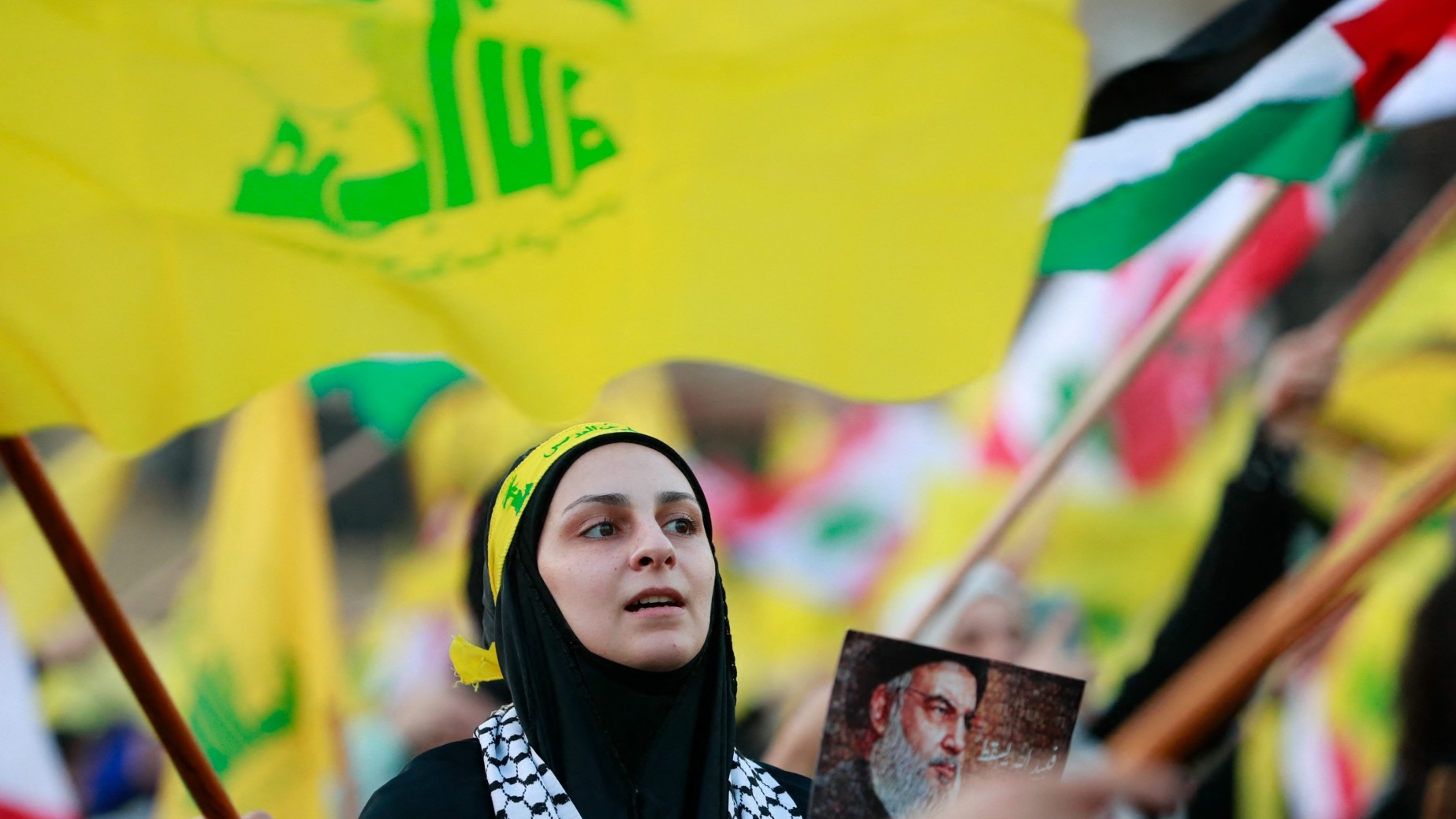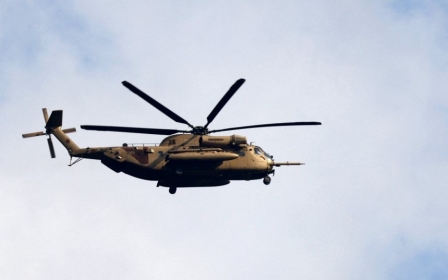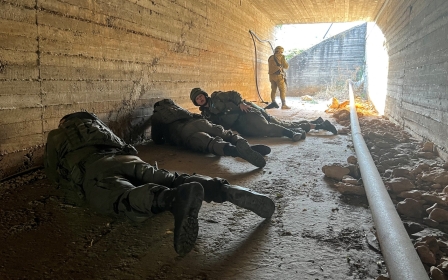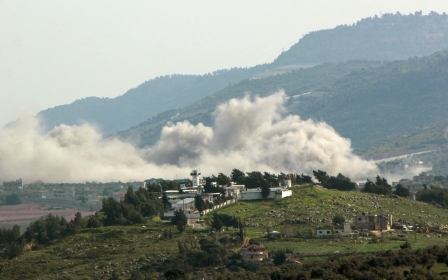Israel-Lebanon conflict: Hezbollah will be a formidable foe if war escalates

Israel’s warmongering against Lebanon is a longtime practice in times of war and peace alike. This week, Britain’s Telegraph published unsubstantiated allegations from anonymous airport staff, swiftly denied by Lebanese officials, that the Lebanese resistance movement (Hezbollah) was importing and storing Iranian weapons at Beirut’s international airport.
Such reckless accusations bolster Israel’s psychological warfare, which has reached a fever pitch amid speculation that Tel Aviv is planning a full-scale attack on Lebanon once it winds down operations in Rafah.
Israel’s reported redeployment of offensive troops to the Lebanese border, along with the regional redeployment of US aircraft carriers Eisenhower and Roosevelt in the Eastern Mediterranean, have added more fuel to the fire.
But a cool-headed analysis reveals the serious challenges Israel would face should it escalate the ongoing war of attrition into a major offensive. Since 8 October, Israel’s attacks on Lebanon have caused death, trauma and displacement among civilians, in addition to successful assassinations of Hezbollah fighters and commanders.
Yet, these attacks have failed to deter Hezbollah from inflicting heavy losses in return. Hezbollah says it has conducted more than 2,100 operations against Israel over the past nine months, including strikes on Israeli surveillance outposts, military bases and high-tech drones.
New MEE newsletter: Jerusalem Dispatch
Sign up to get the latest insights and analysis on Israel-Palestine, alongside Turkey Unpacked and other MEE newsletters
These tactics have led to unprecedented strategic gains for Hezbollah: For the first time in the history of Israel’s wars on Lebanon, military operations and mass displacement are no longer confined to the Lebanese side of the border. More than 60,000 Israeli settlers have had to evacuate their homes in the north.
Last week, Hezbollah revealed through drone footage its ability to identify sensitive Israeli military and infrastructure sites inside occupied Palestine as potential retaliatory targets. Hezbollah is still far outgunned by Israel. But coupled with asymmetrical warfare tactics and an ironclad will, its military capacity is significant enough to inflict large-scale destruction, thus acting as a rational deterrent.
Iran and the US
More significantly, an all-out attack on Lebanon would likely snowball into a regional war. Iran might not interfere directly, at least not immediately, but it would surely accelerate all forms of material and military support to prevent an Israeli victory. Iran’s retaliatory attack against Israel in April after the latter bombed Tehran’s consulate in Damascus demonstrated Iran’s willingness to cross that line.
As expected, US political officials have voiced their support for Israel should it wage war on Lebanon. But the head of the US Joint Chiefs of Staff, Charles Brown, has warned that Washington might not be able to defend Israel against full-scale war with Hezbollah in the same way it did during the Iranian attack in April.
Follow Middle East Eye's live coverage of the Israel-Palestine war
Washington might also have to worry about a resumption of attacks against its own bases in Iraq and Jordan. In short, cooler heads in Washington are aware of the dire consequences should a large-scale war break out. Without direct US support and a green light from Washington, Israel is incapable of launching, let alone winning, this war.
Domestically, US patronage of the Lebanese army has stood in the way of building its offensive capacity, lest it use it against Israel. The result is a weak and demoralised force fit for policing the population, rather than overpowering Hezbollah. While Hezbollah’s pro-US political opponents have a powerful media imprint, absent a military footprint, their impact on the trajectory of a war is limited.
Hezbollah might have lost the active support of its strongest Christian ally, the Free Patriotic Movement. But its decision to open a front in support of Gaza has rehabilitated its reputation among Sunni constituents following its divisive intervention in Syria, with some Sunni groups even joining forces with Hezbollah in its operations against Israel. A unified front reduces the risk of fomenting Sunni-Shia sectarian tensions.
The death and destruction will be one more reminder that peace and Israeli settler-colonialism are fundamentally incompatible
Unity under the banner of aiding Gaza is also a reminder of the root cause of this conflict: Israel’s genocidal war on the besieged enclave. US officials persist in their efforts to neutralise the Lebanese front by dissociating it from Gaza, but Hezbollah has remained steadfast in its adherence to the “unity of fronts” strategy.
In short, the key to ending fighting on the northern front is to implement a permanent ceasefire in Gaza. That would be the rational and moral position for all parties to adopt. But Israel’s intransigence, Washington’s support, Europe’s doublespeak, and the complicity of Arab regimes have all stood in the way of concluding a deal.
As Israel winds down its murderous Rafah campaign, and short of a major shakeup in internal Israeli politics leading to an 11th-hour ceasefire deal, Prime Minister Benjamin Netanyahu may kick the killer can forward into Lebanon. This would present two scenarios. The first is for Israel to escalate its attacks on Lebanon under the current rules of engagement. Another less likely, but still possible, scenario is for Israel to launch a major offensive.
A regional conflagration could then ensue. If it does, no red lines will be respected. Ending the war will not be as easy as starting it. The death and destruction will be one more reminder that peace and Israeli settler-colonialism are fundamentally incompatible. The peoples of the region will never be safe or free so long as Palestine is not free.
The views expressed in this article belong to the author and do not necessarily reflect the editorial policy of Middle East Eye.
Middle East Eye delivers independent and unrivalled coverage and analysis of the Middle East, North Africa and beyond. To learn more about republishing this content and the associated fees, please fill out this form. More about MEE can be found here.





